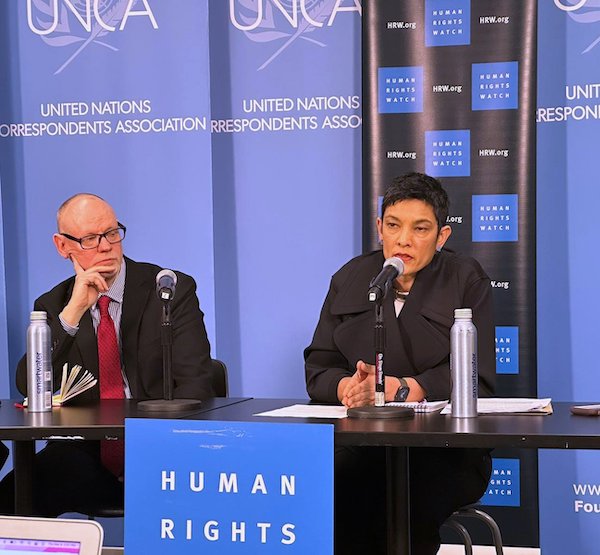
By James Martone
UNITED NATIONS (OSV News) — Nicaragua’s assaults on Catholic and other educational institutions, its stripping political opponents of citizenship, and its arrest of political opponents must stop, said Human Rights Watch’s acting executive director, Tirana Hassan.
“The situation in Nicaragua has been getting progressively worse. What we have been seeing is there has been an attack on political opposition, on civil society, on Catholic institutions and the church itself,” Hassan told OSV News March 9.
She was speaking two days after Nicaragua’s government-run newspaper, La Gaceta, announced the cancellation of the legal status of the country’s Universidad Juan Pablo II and Universidad Cristiana Autónoma de Nicaragua “for being in breach of their obligations under the laws that regulate them.”
“What we have seen is … attacks all across the board on civil society, freedom of religion, and … on political participation” by Nicaraguan President Daniel Ortega’s government, Hassan said. She added these attacks require serious international condemnation and holding Nicaragua’s government accountable.
She was speaking from a hallway at the United Nations headquarters in New York, where she’d briefed reporters on the world’s main human rights challenges for 2023.
A report by a group of independent U.N. experts released in early March noted “serious violations and abuses of human rights perpetrated in Nicaragua since April 2018.”
The violations included extrajudicial executions, arbitrary detentions, torture, and cruel, inhuman or degrading treatment. It also listed arbitrary deprivation of nationality and violations of the right to remain in one’s country, the group of experts noted.
The experts also said they found “reasonable grounds to believe that these violations and abuses were perpetrated in a generalized and systematic manner for political reasons.”
Asked about the cancellation of the universities’ legal status and the reported widespread abuses, Stéphane Dujarric, the spokesman for U.N. Secretary General António Guterres, said, “We’ve been following this closely.”
“We’ve expressed our deep concern and even our alarm at some of the things we have seen from the authorities in Nicaragua,” Dujarric told OSV News March 10. He said, “It is another example of the shrinking space for civil society that we are seeing in Nicaragua.”
